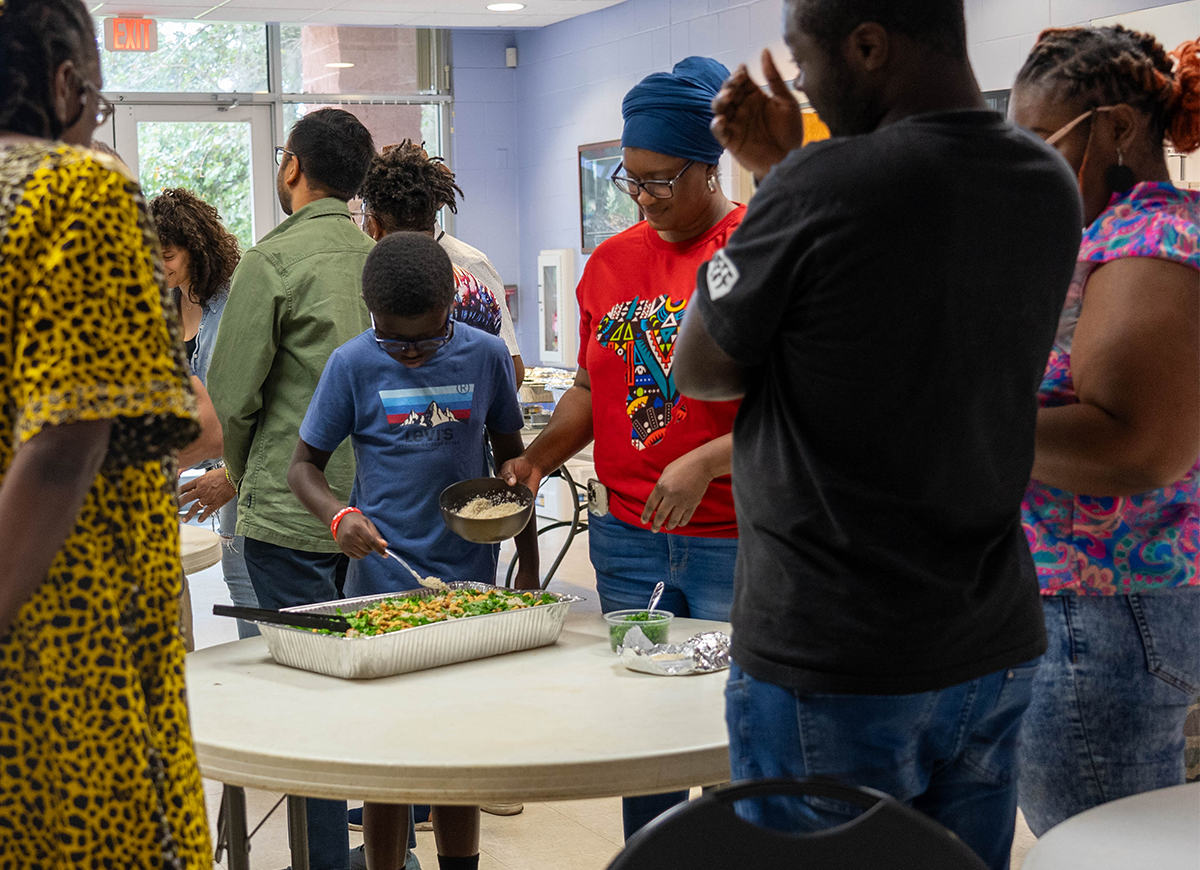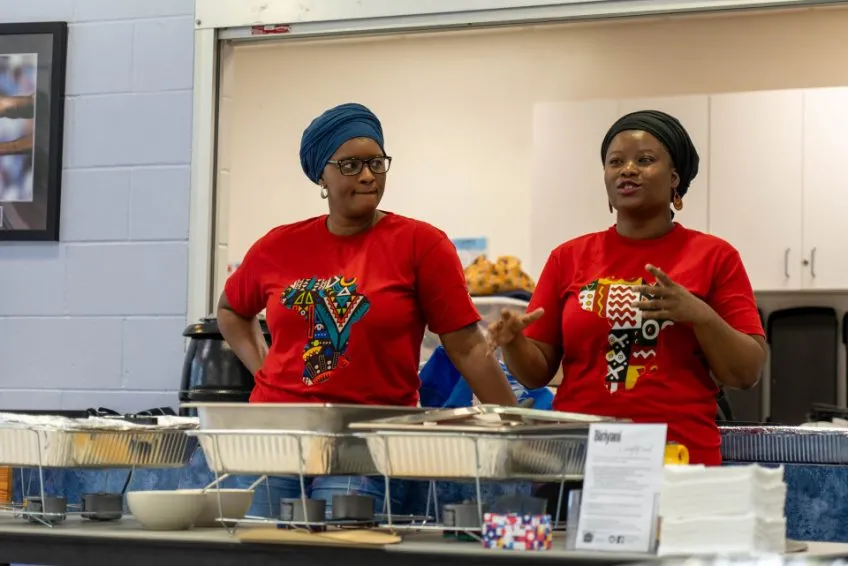Food is Medicine: building community through shared meals and culture

The Center for Arts, Migration and Entrepreneurship (CAME) invites students to connect, learn and grow together through Food is Medicine, taking place on August 1 and 2 as part of the College of the Arts’ 2025 Creative B Summer Program.
Food is Medicine is an interdisciplinary collaboration between CAME, the Institute of Food and Agricultural Sciences (IFAS), and the Center for Arts in Medicine (CAM) that brings students into conversation and creative practice with local businesses and community organizations.
At the heart of the two-day experience lies a simple but powerful idea: everybody eats. Food is not only nourishment—it is a unifying force that can foster belonging, heal divisions and sustain vibrant communities. Through interactive workshops, tastings and hands-on activities, participants will explore how cultural food practices promote health, well-being and sustainability.
The program was designed in collaboration with Ariel D. Smith, Ph.D., CAME affiliate faculty, assistant teaching professor at the Center for Entrepreneurship at Wake Forest University and founder of Ari Demi Enterprises. Dr. Smith is an expert in food entrepreneurship, and her innovative pedagogy routinely invites community members into the classroom to cultivate rich relationships and educational experiences.
“We can make connections,” Smith remarked when asked about the power of sharing food and the role of community in food culture. “We can make relationships. We can find ways to heal. We can find ways to move forward.”
For Smith, this type of work is deeply rooted in the need to connect with local communities. “Wake Forest has a reputation for being known as ‘the Bubble.’ Students stay on campus. They don’t engage with the surrounding community unless it’s for an assignment—because they don’t have to.” By reimagining these relationships, Smith has helped create meaningful opportunities to bridge campus and community at her institution and hopes to share what she’s learned with the University of Florida.
Creating and maintaining community carries over into the Creative B 2025 theme of sustainability, with programming designed to invite undergraduate students to engage with the local businesses, artists and programs that make up the dynamic and thriving fabric of Gainesville—the place they’ll call home for the next four years. “The intent is to burst that bubble,” Smith argues. “How are our students going to become the next generation of global leaders if they’re not locally engaged?”

Friday evening kicks off with a presentation by Adegbola Adesogan, Ph.D., associate vice president and director of the Global Food Systems Institute, followed by the Recipes for Belonging tasting workshop featuring Gainesville’s Flavorful alongside local chefs and the non-profit organization Working Food. This first day sets the tone for reflecting on how food can bridge many backgrounds and inspire students to engage with local food systems and entrepreneurship.
Saturday’s programming offers an immersive blend of art, science, and community-building. After a shared lunch and discussion on Smith’s innovative “Kitchen Table Pedagogy,” students will explore a tech-infused Seed Cabinet installation by Professor Katerie Gladdys from the School of Art and Art History to learn about seed saving and cultural storytelling. A planting activity led by Dina Liebowitz, Ph.D., director and undergraduate coordinator of IFAS’s plant science degree program, will guide participants in caring for their own seedlings. The afternoon concludes with a zero-waste pigment painting workshop by Working Food co-founder and seed program director, Melissa DeSa, highlighting how creativity and sustainability go hand in hand.
The Food is Medicine theme grew out of a 2024 strategic planning initiative led by Karla Shelnutt, Ph.D., professor and associate dean for Extension Engagement in IFAS, that convened faculty and staff across UF to build an interdisciplinary network and learning community that explores how nutritious, culturally meaningful food connects with disease prevention and management while strengthening local food systems. The goal of the initiative was to form strategic partnerships, advocate for policy changes, expand nutrition education, and conduct community-engaged research to demonstrate the value of food-based interventions. What emerged was an interdisciplinary effort aimed at creating sustainable, equitable approaches that position food as a central component of health and well-being.
By weaving together food, art and dialogue, Food is Medicine aspires to nourish not only the body but also the spirit of connection and curiosity. Whether you’re eager to discover new cultural traditions, cultivate practical skills, or simply meet others who share your passion for community, this event promises a rich, meaningful experience. All UF students are welcome to attend and take part in shaping a healthier, more connected future—one shared meal and story at a time.
Food is Medicine will be held on Friday, August 1 from 4:00 p.m. to 7:00 p.m. and on Saturday, August 2, from 11:30 a.m. to 3:30 p.m. Both events will be hosted in the Career Connections Center in the Reitz Union.
Food is Medicine events are free, but because spaces are limited, RVSP is required. The Eventbrite can be found here: Food is Medicine | Events | College of the Arts | University of Florida.